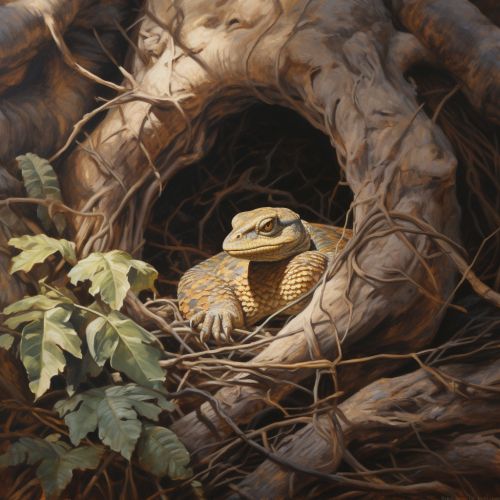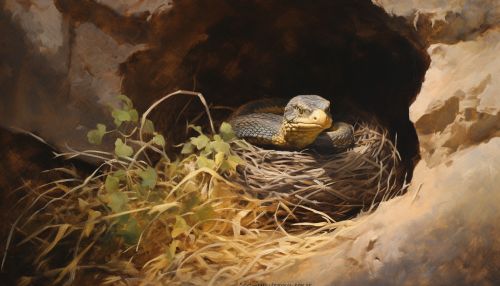The Evolution of Parental Care Strategies in Reptiles
Overview
Parental care in reptiles is a fascinating aspect of animal behavior that has evolved over millions of years. This article explores the various strategies of parental care observed in reptiles, the evolutionary pressures that have shaped these behaviors, and the implications for survival and reproductive success.


Evolutionary Origins
The evolution of parental care in reptiles is a complex process influenced by various ecological and evolutionary factors. The earliest reptiles, dating back to the Carboniferous period, likely exhibited minimal parental care, similar to modern-day amphibians. However, over time, certain species have developed more advanced forms of care, including nest building, egg guarding, and even post-hatching care.
Types of Parental Care
Egg Guarding
Egg guarding is the most common form of parental care in reptiles. This behavior involves the parent, usually the female, staying with the eggs until they hatch. This strategy is particularly common in snakes and some species of lizards.
Nest Building
Nest building is another form of parental care observed in many reptiles. This involves the construction of a safe and suitable environment for the eggs. Nest building is common in turtles, crocodiles, and some species of lizards.
Post-Hatching Care
Post-hatching care is the most advanced form of parental care in reptiles. This involves the parent(s) continuing to care for the offspring after they have hatched. This behavior is rare in reptiles but has been observed in some species of snakes and lizards.
Evolutionary Pressures
The evolution of parental care in reptiles is influenced by a variety of factors, including predation pressure, environmental conditions, and reproductive strategies.
Predation Pressure
Predation pressure is a major driver of parental care evolution. In environments with high predation pressure, parental care can increase offspring survival by protecting eggs and hatchlings from predators.
Environmental Conditions
Environmental conditions can also influence the evolution of parental care. In harsh or variable environments, parental care can increase offspring survival by providing a stable and suitable environment for development.
Reproductive Strategies
Reproductive strategies can also influence the evolution of parental care. Species that produce fewer, larger offspring tend to invest more in parental care than species that produce many, smaller offspring.
Implications for Survival and Reproductive Success
Parental care strategies in reptiles have significant implications for survival and reproductive success. By protecting eggs and hatchlings from predators, providing a suitable environment for development, and investing in offspring quality, parental care can increase the chances of offspring survival and, ultimately, reproductive success.
Future Research Directions
Despite significant advances in our understanding of parental care in reptiles, many questions remain. Future research should aim to further elucidate the ecological and evolutionary factors driving the evolution of parental care, the genetic and physiological mechanisms underlying these behaviors, and the implications for conservation and management.
